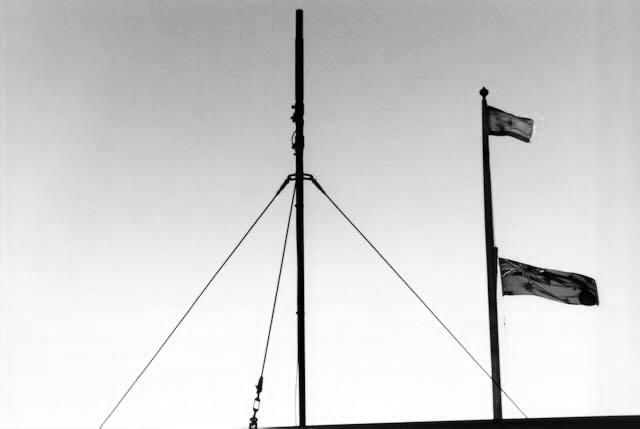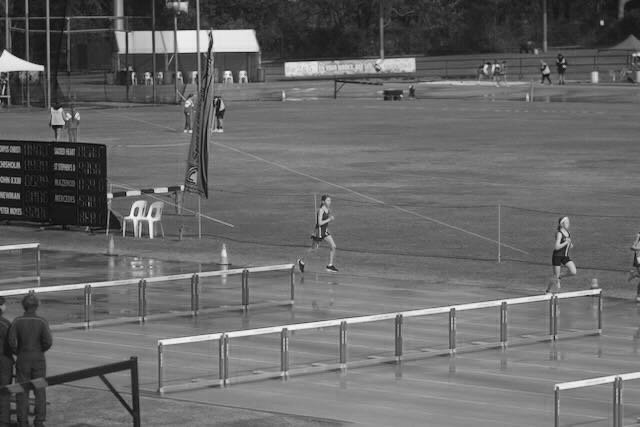The Process is the Solution.
The greatest and most important problems of life are all in a certain sense insoluble…. They can never be solved, but only outgrown.
- Carl Jung
The process is the solution.
The time, attention, care, thought, then action - or not - are the solution to the insoluble problems.
Alone - or witnessed by another - the process is the outward sign of an inner growth.
The Deal.
An organisation’s major means of action, finally, can only be the manipulation of information or at least the strict regulation of access to information.
Michael Crozier, ‘The Bureaucratic Phenomenon’
We join an organisation for the same reason we hire a cab, cleaner, tradesperson, or watch the news or read a newspaper or a book.
We want someone else to go to the effort to decide what’s best for us.
We want someone else to curate the volume of information and choose what we need, and make it into a story.
We make a deal with the boss: you cut up my meat and mash my potatoes and feed me, and I won’t complain about the blandness of the processed food.
Don’t believe me?
Try working for yourself.
If You're a Boss.
If you’re a boss - immediately make it all about us - not you. Keep us informed, involved, engaged, supported, affirmed, responsible.
Don’t allow us any time to blame you for our unhappiness.
If we’re going to be miserable, best we realise early it’s not you - it’s me.
So we can seek our happiness elsewhere.
It's All Theatre.
The Parliamentary Undersecretary of State for Defence for the Royal Air Force Mr Geoffrey Pattie MP and the Air Member for Personnel Air Marshal Sir John Gingell visited RAF Linton-on-Ouse. Announcing their impending arrival of the VIPs, the public address declared: ‘All personnel are to be meticulous in the paying of compliments.’
The two visitors, escorted by the Group Captain Station Commander, joined the pilot trainees in their crew room.
‘You’ll never be closer to the horse’s mouth than you are this afternoon,’ the Station Commander tells his young pilot trainee subordinates, referring to the Member of Parliament responsible for their welfare. The room almost tilts with the massive power imbalance on opposite sides. The Commander invites questions from them.
‘One of the things that attracted me to the RAF was the prospect of six weeks annual leave,’ a young trainee bravely led off. ‘This last leave year, I only got two weeks.’
‘Everybody needs leave,’ the Undersecretary began, ‘And I’m a great believer in bigger and better holidays…’ And then … ‘BUT… ‘ and he hands over to the Air Marshal (AM) to answer the question.
‘We want everybody to have the maximum whack of leave that he can get in,‘ the AM begins. And then … ‘BUT … there will be periods when we can’t do our job if we have our maximum six weeks.’
The young Officer is not perturbed. He responds by pointing out that he’s not flying as well as a result of his lack of a break from training.
The AM says his fatigue is ‘all part of getting used to the intensity of operations. You grow out of the business of feeling tired after a while. You shouldn’t feel worried if you feel tired just at the moment.’
Another young trainee joins the fray. ‘Do you believe it’s fair to mislead people who are thinking of joining the Air Force ..?’
After the VIPs leave, the trainees review the experience over beers in the Mess. ‘We were being careful about what we said,’ they all agree.
The VIPs also gather to debrief. ‘I was a bit surprised,’ the Undersecretary says. ‘They seemed very much concerned with the day to day problems - leave came up and clothing came up.’
The Station Commander reminds them that the officers were told beforehand that ‘Nothing is taboo and let’s see what comes out. I thought they’d be asking how many seats would there be on [the then newly introduced] Tornados.’
Meanwhile, back in the Mess, one of the trainees says ‘You can’t afford to think about how many bombs your Tornado is going to carry.’ They all agree that their focus is on their next sortie and whether it will lead to a ‘chop ride’ and failure.
‘If he’d asked to come and see us why didn’t he ask us more questions?’ another young officer says to nods all around.
We’ve all been there. ‘Give us your feedback. ‘We value your opinion.’ ‘You are our most important asset.’ ‘There is no such thing as a dumb question.’ ‘We want to hear from you.’ These days its mostly in the form of online ‘anonymous’ surveys.
They pay our mortgage and expect us to tell the truth.
It’s all theatre.
A Step in Humility.
Step 4 of the Five Steps to a Good Decision is Give a Hearing.
We invite any person who may be adversely affected by our decision to listen to what decision we’re considering and our reasons, and then for us to listen to their response.
This is a step in humility, which is why few bosses do it.
And yet the experts say when we ask for advice, we signal to the other person that we are more competent, not less. Because it makes the other person feel valued, important, smart, and seen by us. We only value the opinion of another who we respect.
Bosses who are servant-leaders, confident, intelligent, and humble always give a hearing.
Grapple.
Watching a decision maker grapple with a problem by following a process like the Five Steps is educative, motivating and inspiring.
Like watching an athlete perform.
When did your boss last let you watch them in action?
The Good Lieutenant.
Every bad boss relies on a good lieutenant.
The good lieutenant decision launders the bad boss’s work.
The bad boss rewards the good lieutenant, and the followers appreciate her shielding them from the bad work of the bad boss.
The good lieutenant’s good work enables the bad boss.
Better to do the right thing badly than the wrong thing well.
TEWT.
The Army has a practice called a TEWT: Tactical Exercise Without Troops.
Participants use a sand table or computer model or paper and pen to simulate decision making - friendly and enemy - in a battle. The TEWT allows everyone to see what is potentially in everyone else’s mind, including the enemy. Participants show Friendly Course of Action, Enemy Courses of Action, and the likely responses to each.
The Five Steps to Good Decision Making - or any decision making process - is like a TEWT in that it makes decision making visible - if only to the decision maker. By doing so it does two things:
Invites a better course of action.
Shows faith in the followers.
Assess the Information.
Like every battle, the Battle of Arnhem was chaos. A lot happened at once.
Historians attempt to piece together eyewitness accounts from participants, their diaries, or other contemporaneous records. Reconciling the versions is further complicated by people’s tendency to experience time differently in periods of fear, panic, confusion, noise and mayhem.
Yet almost every witness has the same account of one event.
The Royal Air Force dropped desperately needed supplies. Everyone looked up - friend and foe. Everyone saw the same thing. Everyone’s accounts of it overlapped.
The second step in the Five Steps to a Good Decision is Assess the Information.
Unlimited.
Decision making is commonly explained as comparing and then choosing between at least two options.
The problem with this model is it assumes the pre-existing options are the limit of our world.
The Five Steps to Good Decision Making opens us up to unseen possibilities.
By Stepping Back, we acknowledge, wallow in, then purge ourselves of, our emotional reflex: our selfishness.
By Defining the Issue, we remind ourselves of our Widget that we may have forgotten.
By Assessing the Information, we become the naive inquirer and open to new evidence.
By Giving a Hearing, we listen to the best argument from anyone with skin in the game.
By Checking for Bias, we again remind ourselves of our Widget.
The Five Steps - or any process we design - gives us the best chance of finding a previously hidden doorway. Or otherwise affirming our previous options.
Divine Inspiration.
The immature boss fears sharing achievement of a common aim with someone else.
The immature boss needs the world to know that success was due to her leadership.
The immature boss wants us to think she is god-like in her wisdom.
She does not need, let alone follow, any mortal Five Step process.
Success is because of her divine inspiration.
The Helicopter View.
The Five Steps to a Good Decision draw us out of the weeds and ascends us into the helicopter view.
A good decision forces us to see the bigger picture.
Our part in the whole.
How our decision will affect - and be affected by - the whole.
That’s called Situational Awareness.
That’s called Leadership.
That’s called Humanity.
Humility.
'Jesus knew that the Father had put all things under his power, and that he had come from God and was returning to God; so he got up from the meal, took off his outer clothing, and wrapped a towel around his waist. After that, he poured water into a basin and began to wash his disciples' feet...'
Gospel of John 13:3-6
For non-believers, substitute ‘the most powerful entity imaginable’ for ‘God’.
This passage is the ultimate lesson in servant leadership.
Jesus’s immediate response after affirming he is the son of God, and soon to return to God, and has all things under his power - is to do what the lowest of slaves do: kneel before each of his followers and wash the filth of walking the roads of first century Palestine off their feet.
No words. Action.
How many so-called ‘leaders’ are confident enough in themselves and the source of their authority that they are willing to risk humiliation to practically serve others?
When was the last time your boss risked public humiliation to serve you?
When was the last time your boss stooped to clean off the excrement you’d walked through in the course of following them?
When was the last time your boss come into your office and sat down for a chat?
No?
No words. Deeds.
Real leaders are rare.
The Sentry.
We stand before the making of a decision as we stand before a sentry.
The decision challenges us as it impedes our forward momentum.
‘Halt! Who goes there?!’
We stop and answer.
‘I am an Ego!’ (Step 1 - Step Back.)
‘Here’s where I’m headed!!’ (Step 2 - Define the Issue.)
‘Where am I?!’ (Step 3 - Assess the Information.)
‘How can you help my progress?’ (Step 4 - Give a hearing.)
‘What have I missed?’ (Step 5 - Check for bias.)
Modern Pharaoh.
The Pharaohs of Ancient Egypt took some of their household slaves with them to their tombs.
Some bosses are like that.
They have learned all they think they need to learn, and know all they think they need to know, and are therefore dedicated to preserving the status quo, lest something new makes them redundant.
They are dead.
In death, they take their obedient workers with them.
A Critical Juncture.
We have now arrived at a critical juncture. The thing that separates life from non-life is information.
Paul Davies
Good decision making is a process of collecting information.
About ourselves - Step One.
About our Widget - Step Two.
About others - Step Three.
About our effect on others - Step Four.
About our integrity - Step Five.
Good decision making is life-giving.
Wrong Way. Go Back.
“... Each person is fully entitled to consider himself a part-owner of the great workbench at which he is working with every one else.
Pope John Paul II”
The names, the titles, the rituals, the rules, the policies, the manuals, the meetings, the acronyms, the buildings, the hirings, the firings, the promotions, the values, the hierarchy, the board, the organisation, the corporation, the entity, the decisions, the ‘it’, the ‘they’, the ‘we’, the ‘our’…
Exist to serve you.
To amplify you.
To dignify you.
To liberate you.
Not the other way around.
Compensation.
We don’t sell our souls each day at work.
We mortgage them. Hand over title to the boss - knowing she can increase interest rates, add fees, or foreclose.
So we do as we’re told.
We mortgage our souls to pay our mortgage.
There’s a reason Americans refer to salary as ‘compensation’.
Three Challenges.
The first challenge to an assumption should arouse curiosity leading to an inquiry into a new understanding of the world.
The second challenge should arouse excitement about the opportunity to kick the tyres of the new understanding of the world.
The third challenge should either corroborate the new understanding or - we repeat the first challenge.
Hanlon's Razor.
Robert J Hanlon devised a theory: “Never attribute to malice that which is adequately explained by incompetence or stupidity”. It’s known as Hanlon’s Razor.
Like the male insects who mate with other male insects.
Not gay - just struggling to do their best within a complex environment.
Like most humans.



















